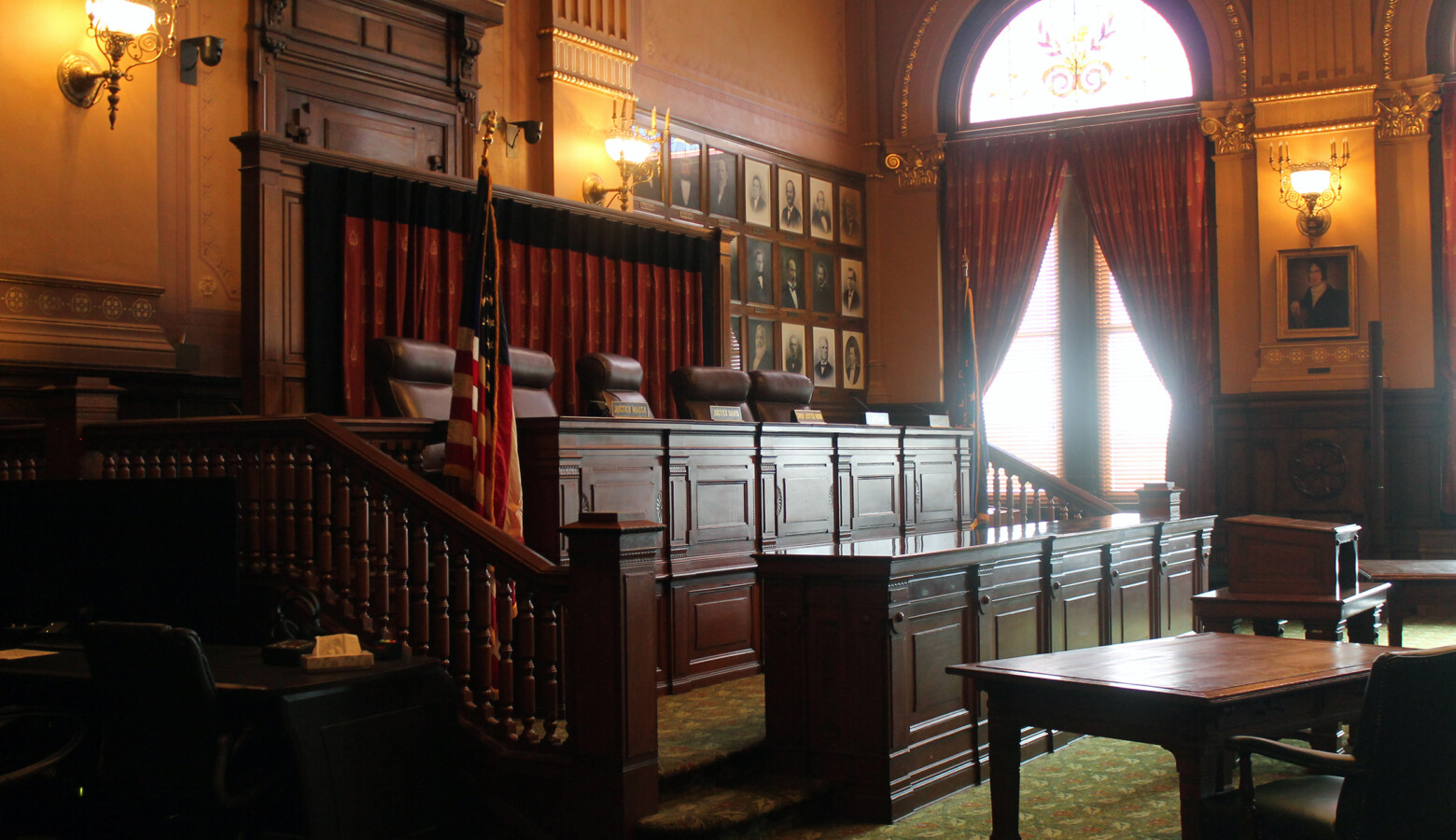Indiana’s Revenge Porn Law Challenged Over First Amendment Issue

The future of Indiana’s revenge porn law is being put to the test. The state Supreme Court on Thursday heard arguments about whether the law violates the First Amendment.
The revenge porn law makes it a crime to share a so-called “intimate image” if the person sharing it knows the person in the image didn’t consent to it being shared.
The case before the Supreme Court involves college student Connor Katz, who shared on Snapchat a brief video of his then-girlfriend performing oral sex, without her consent.
Katz’s attorney Stacy Uliana said doing that was stupid and “bad form.” But she questioned whether it should be criminal.
“Whether the legislature intended to criminalize the act of showing one person – in a private conversation – a two-second, fleeting video, from which the alleged victim is not even identifiable,” Uliana said.
But attorney Caryn Szyper, arguing for the state, said the law is very narrowly written – and serves a vital purpose in protecting people.
“Deterrence is key because the damage to the victim is immediate and cannot be undone,” Szyper said.
Szyper also said it shouldn’t matter whether Katz’s girlfriend wasn’t “identifiable” in the video he shared.
“The victim still knows that their body has been exposed, even if someone else doesn’t know it’s them,” Szyper said.
Uliana insisted, though, that the law was written too broadly, making it unconstitutional. She used the example of a bathing suit malfunction, a situation where she said there’s no expectation of privacy.
“We’ve all gone off the diving board and you came up and it wasn’t good,” Uliana said. “And that person could have a picture put out on the internet and that would be a violation of this. And I don’t think that’s what it’s supposed to be. I think, with the First Amendment, right, we have to be very careful of a slippery slope.”
But Szyper countered that the court could interpret the word “intimate” in the state law to mean “private.”
There is no timeline for when the Supreme Court will issue its decision.
Contact reporter Brandon at bsmith@ipbs.org or follow him on Twitter at @brandonjsmith5.
Join the conversation and sign up for the Indiana Two-Way. Text “Indiana” to 73224. Your comments and questions in response to our weekly text help us find the answers you need on statewide issues.
